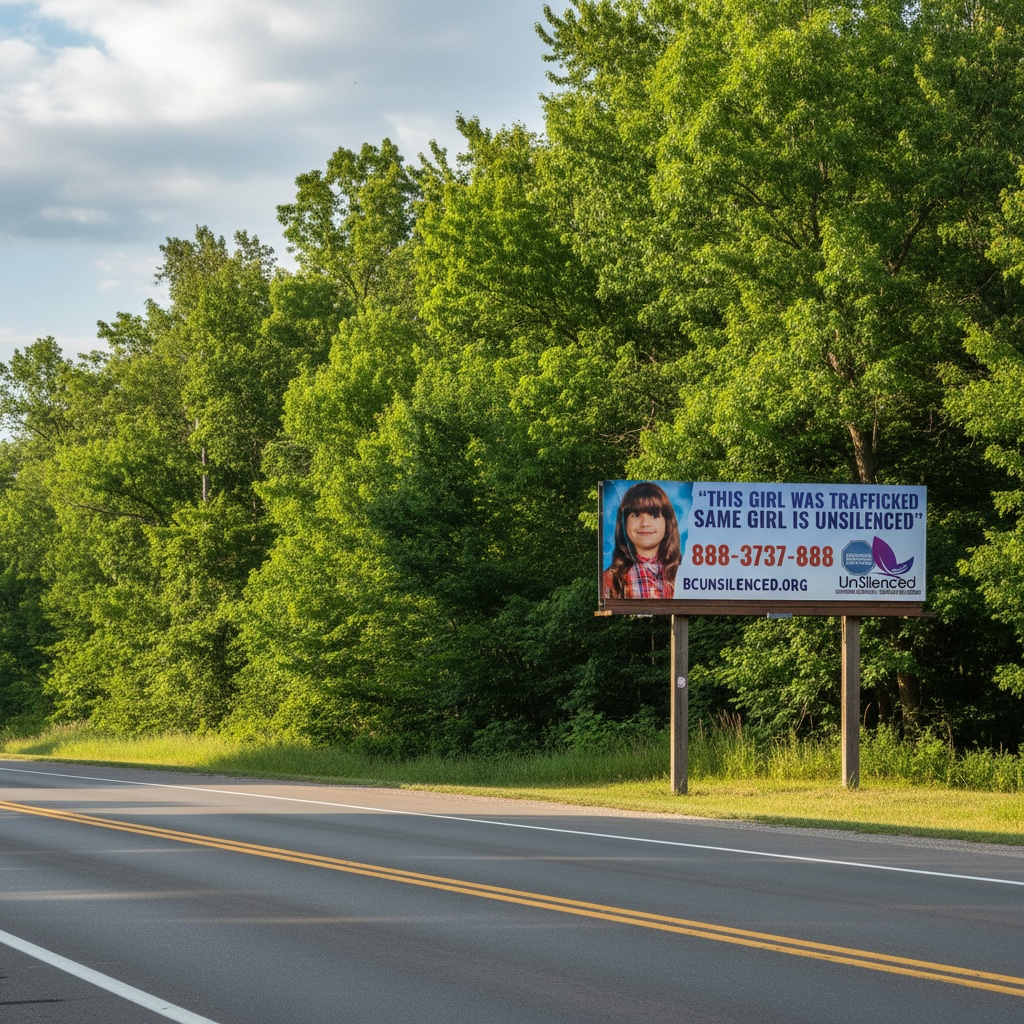Robin Bolz - UnSilenced Founder, Director of Operations, Kalamazoo Area Anti-Human Trafficking Coalition
“Human trafficking is when someone is forced, tricked, or controlled into labor or commercial sex, often through threats, violence, or emotional manipulation.
It doesn’t always look obvious. Victims can be anyone: your grandchild, the neighbor’s kid, or the woman working the front desk. Traffickers often maintain control by taking away a person’s money, identification, sense of safety, or freedom to leave.
While many picture trafficking as someone chained in a dark basement, it usually looks far more ordinary: a person going about their daily life, hiding fear and abuse behind a forced smile.
It’s happening closer than we realize—right here in our own communities.”
What does a person experiencing trafficking look like?
There’s no single look. Trafficking is about control and exploitation, not appearances. Look for situations and behaviors—not clothing or lifestyle.
-
Someone else holds their ID/phone/money or speaks for them
Scripted answers, looks to another person before responding
Fearful, controlled, or exhausted; avoids eye contact
Not free to come and go; monitored or tracked
Owes a “debt” they must work off
Unsure of where they are staying, or can’t say an address
-
Under 18 involved in any commercial sex (always trafficking)
A third party posts ads, arranges rides, or takes profits
Frequent hotels/short stays, multiple phones, sudden expensive items
Injuries, intimidation, or threats from a “boyfriend/manager”
-
Withheld wages/ID, threats about police/immigration
Excessive hours, unsafe housing tied to the job
Crowded living with co-workers; restricted movement
Forced to lie about age, hours, or job duties
“Important: These are indicators, not proof. Trust your instincts and get guidance—you don’t have to be certain to ask for help.”
Signs a minor might be experiencing trafficking:
There isn’t one “type” of victim. Look for control, exploitation, or exchange of sex/work for things of value—not for a specific outfit or attitude.
-
Under 18 involved in any commercial sex (money, rides, gifts, a place to stay)
A much older, abusive or controlling partner/person
Someone else posts ads, arranges rides, or keeps the money
Frequent hotels/short stays, sudden expensive items with no explanation
Scripted answers, won’t speak freely, looks to someone before responding
Injuries/fearfulness; drastic school changes (absences, dropping activities)
Branding-style tattoos or marks tied to another person (when safe to note)
-
Long or dangerous hours; not allowed to stop or rest
Wages or documents (ID/SSN) kept by someone else
Lives where they work or crowded housing controlled by employer/relative
Told to lie about age, hours, or duties; not enrolled/attending school
Threats of police, CPS, immigration, or harm to family
What do I do if I suspect trafficking?
Get as much information about the possible victim or sketchy situation as you safely can
Call the National Human Trafficking Resource Center hotline: 888-3737-888 or text INFO or HELP to BEFREE (233733)
If you or anyone else is in immediate danger, call 911

